
Foreword 2011: Holistic Spirituality – a new name for the New Age Movement
As explained in our first part of this series, the following material was originally written in 2005 in an attempt to reach the New Age movement.
For this and other reasons previously explained, more traditional Catholics may find the language and even the content here different to the norm at this site.
In part, this stems from my being a more liberal, more hesitant Catholic back in 2005. But it also stems from a need I still see to enter into dialogue with New Agers.
Yes Christians must attempt dialogue with the New Age movement. Hopefully, this material might be of some use in that dialogue. For convenience, we will list and link the six parts of this series:
- Talking to New Agers —Part 1: A Still-Hesitant Apologetics
- Talking to New Agers —Part 2: On Holistic Spirituality
- Talking to New Agers—Part 3: On Amputating Christianity
- Talking to New Agers—Part 4: A Catholic Convert from the New Age
- Talking to New Agers—Part 5: The Catholic Sacraments
- Talking to New Agers —Part 6: The Holistic Bubble
And now back to 2005, at least after the following short (eight minute) video from myself—Roger Buck
True dialogue: it involves aspiring to really listen to the other party – and to try to speak in terms that will be understood. Thus in talking with New Agers, it may avail us little to speak of the Great Dogmas of the Faith. Another form of expression will be needed – regrettable as that may be.
For example in the following section I try to engage – and challenge – the New Age text Soulution: The Holistic Manifesto, which posits nothing less than that the “Soulution” to the world’s problems is to be found in the modern so-called “holistic” spirituality which is either completely religion-less or at best gives religion a very secondary role to a so-called “holistic” ethos.
Bloom’s name for this approach is “holism” these days. Though many years ago, the favoured term was “New Age”. Bloom like so many others has abandoned the term “New Age” because of the silly associations that term has acquired.
At least, there are many who once proudly called themselves “New Age” – I was once such a person myself – who now prefer terms like “holistic” or “holism”.
But make no mistake, Soulution is definitively a New Age text.
Now whether it is called “holism” or “New Age” a marked quality to this thinking is its optimism. In William Bloom’s book the optimism is enormous – everything in the world would seem to be just getting better and better and better. Such is the case with many who believe that a New Age of Aquarius is dawning.
Here for example are the final two sentences of Soulution, which are clearly intended to sum up the book’s entire message:
The forecast for the global community is great:
* Well-being
* Democracy
* Freedom
* Spirituality
Holism, by whatever name it is known, is projected to become the major spiritual approach of the planet [Emphasis and bullet-points in original].”
Now there is little point I think in challenging such thinking with arguments advanced from Dogmatic Theology.
Instead I try to challenge Bloom’s thesis in a different way.
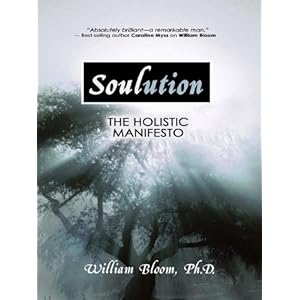
Rather than using Catholic arguments to advance what I think is so tragically lacking in Soulution,
I turn to the thoughts of another writer, who I imagined might be more acceptable to the New Age mindset.
In this case, Robert Sardello who draws on C.G. Jung and Rudolf Steiner. At least back in 2005, I thought that certain New Agers might listen to Sardello in a way that they would not listen to – say – the Holy Father.
For some Catholics, an author drawing on Jung and Steiner may seem little better – or different – to New Age thinking.
But as the following makes clear, Sardello is offering a very different vision to New Age-ism. For although Sardello is hardly a Catholic Traditionalist, we will see that he clearly parts company with such New Age-ism.
For in his view, a glorious spiritual New Age is hardly self-evident – rather our epoch is filled with a dangerous materialism. Thus while Sardello is neither a conservative or traditionalist, he can at least appreciate the position of conservatives, who feel that our society faces dreadful spiritual loss and emptiness.
And in my original 2005 material, I link Sardello’s insight to another writer named Bloom – Allan Bloom rather William – and author of the masterpiece: The Closing of the American Mind.
And here we can resume with our discussion of growing world materialism – philosophical materialism denying higher truth – in light of Allan Bloom’s insights:
From 2005: Allan Bloom, William Bloom and Robert Sardello

In this ongoing ascendancy of materialism, a vacuum is created, in which evil can rush. At least, this is what Rudolf Steiner predicted – the rushing in of evil.
Though different from Steiner in many respects, I believe Allan Bloom might agree – although he could prefer the word mediocrity.
Bloom, as I say, writes very movingly about how our society’s aspiration to truth has been killed.
In any event, Steiner I am sure, would laud Allan Bloom taking on one of the modern killers of truth – so-called ‘political correctness’.
For Bloom writes of our modern cultural climate:
“The point is not to correct the mistakes [of the past – religious, philosophical etc] and really be right; rather it is not to think you are right at all (Italics mine).
And in the fear of expressing that anything is ‘right at all’ – again, beyond the senses, beyond reason – the world becomes more narrow and intolerant – hostile to any claim of deeper truth.
And the world becomes more open to things that are clearly not right – or at least were once clearly seen as not right.
We once clearly saw ugly buildings, for example, as not right and designed beautiful buildings instead. Such things we clearly saw, when tradition shaped people’s lives more, which Allan Bloom argues created delicacy and sensitivity of perception.
Thus my wife, Kim, still raised somewhat in a climate of European tradition is exquisitely sensitive to the delicacy of fresh vegetables and great music, whereas I, raised in a brash America of Coca-Cola, noise and capitalist stimulation of desire, have a life-long craving for sugar and coarseness …
As I write you these words in my 300 pound body, this is but a single personal example of what Allan Bloom intimates: the creation of a vacuum in which mediocrity – if not outright evil – rushes in. …
Let us stay with these two opposed planets: William and Allan Bloom. Which one is right I wonder, as I look out on a new century with far more psychological awareness than ever before, and far more knowledge, or at least information – just as William Bloom markedly emphasises.
Which one is right I wonder, as I look out at the political world in the UK, for example, and see that all that now remains is a choice between two Tory parties? That bastion of soulless capitalism, The Economist got it perfectly right, I believe, when it urged its readers: ‘Vote Conservative. Vote Blair.’
Is this more freedom, more democracy? Or is it right that our current epistemological impasse inevitably leads to a narrowing of cultural options … ?
My only answer is that both Blooms are right. William is right that there is a world of new possibility, shared by a certain group of people. But I am concerned that this group is quite small, and as I shall come to, often immersed in a bubble …
And I am concerned that for most of the world beyond this bubble, Allan Bloom’s view is far, far more telling and relevant. What is needed then, are bridges to and fro these two planets of William and Allan Bloom.
This is where I come to Robert Sardello. Unlike William Bloom, Sardello vividly acknowledges the loss of the old. And to me, he appears vividly aware of the world in a way that William, at least sometimes, doesn’t. Thus he writes of:
A tremendous void of love, and thus of soul, in the world.
This void does not remain empty, but is taken up primarily by scientific, technological and economic materialism, which would try to make a world full of substitutes for love and soul (Italics mine).
And unlike William who offers us a strategy of optimism and remaining ‘upbeat’, Sardello maintains that one of the key things we need to develop today is grieving – grieving the void and what comes with it.
If we are to heal the world, we need to mourn.
Sardello not only grieves, but encourages anger at this soulless world of ‘scientific, technological and economic materialism’ – a world he calls counter-creation.
Following Steiner, he sees evil rushing into the vacuum, creating loveless artefacts all around us, ever more devoid of soul. Thus Sardello writes that we must:
begin the task of discovering the mode of love that can bring balance to the form of counter-creation. This mode of love is anger. … when one has enough presence of mind to feel anger in the presence of advertising, mindless television, senseless violence, manipulative entertainment … such anger should be listened to … I also encourage rage toward the world of counter-creation (Italics mine).
Now all of this, this encouragement to mourning, grief and anger, even rage … all of this, is very different from so much of the New Age culture – where an ‘upbeat’ detachment is far more the norm.
It is with grief that I say that I became very conscious of this, reading Soulution, William’s distillation of New Age thinking.
This distillation includes William’s list of the “core skills” of the holistic movement. It is a very moving list, which includes skills such as self-reflection, willingness to change, and kind generosity.
In very beautiful passages, William urges us to bring these skills into all areas of ordinary life. For example, there is a long, moving section about bringing loving consciousness to the world of our financial transactions – everything from vast electronic flows of money to our meeting with the girl in the corner shop.
Again, William’s book is filled with real heart. Traditionalists need to admire such beauty, wherever it is found. But to my mind, there are also grave problems in the book. For example, William’s list of core skills – beautiful though it is – is also, I feel, a very incomplete list.
It does not, for example, include Sardello’s call for grieving and anger. In fact, I fear that William, in his call to be ‘upbeat’, tends to stigmatise these as ‘moaning’. And I am concerned that his list of “core skills” may actually limit our sensitivity to the world around us.
2011 Remark: The point that we shall be moving to is that “holism” or New Age-ism so often assumes that it is offering us the whole of “global spirituality” – or at least what it deems core or essential to a “global spirituality”.
What need for the Church if everything core or essential is already available through “religion-less spirituality”?
Yet Sardello a depth psychologist drawing on Steiner can reveal much that is so tragically missing in the so-called “universal, holistic, timeless” approach of the New Age and I argue that which is far more Christian …
To be Continued …
To Navigate Through This Series
- Talking to New Agers —Part 1: A Still-Hesitant Apologetics
- Talking to New Agers —Part 2: On Holistic Spirituality
- Talking to New Agers—Part 3: On Amputating Christianity
- Talking to New Agers—Part 4: A Catholic Convert from the New Age
- Talking to New Agers—Part 5: The Catholic Sacraments
- Talking to New Agers —Part 6: The Holistic Bubble
Foreword for Monarchy by Roger Buck
Buying Books at Amazon Through These Links Gives Us a Commission. This Supports Our Apostolate. Thank You if You Can Help Us Like This!

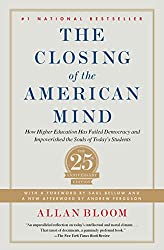
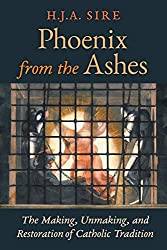
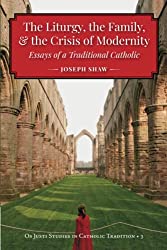
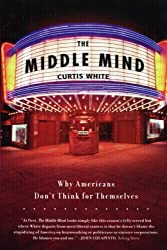




Comments
comments are currently closed
One response to “Talking to New Agers —Part 2: On Holistic Spirituality”
[…] More from Google Blogs]: From 2005: Talking to the New Age (A Still Hesitant Apologetics … […]